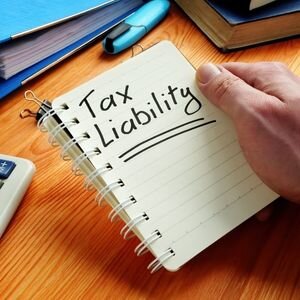
Capital gains tax can be a complex and challenging aspect when selling a home in Gainesville, FL. Fortunately, there are ways to minimize these taxes and even save a significant amount of money with a bit of planning. Homeowners seeking to reduce or avoid capital gains tax lawfully will find this advice particularly useful. If you’re planning to sell soon, working with cash home buyers in Gainesville can also help simplify the process and speed up your timeline. Find out practical ways to keep more of your hard-earned equity, like taking advantage of exemptions, making smart upgrades, or selling at the right time.
Key Highlights
- Utilize the primary residence exclusion to save up to $250,000/$500,000 on capital gains taxes when selling a home.
- Strategic home improvements can increase your property’s basis, reducing taxable profit and mitigating capital gains tax.
- Timing your property sale correctly can transform high short-term gains into favorable long-term gains rates.
- Consider a 1031 exchange to defer capital gains taxes by reinvesting sale proceeds into a similar property.
- Consult financial advisors to navigate Florida’s regulations and optimize real estate investments strategically.
Understanding Capital Gains Tax for Gainesville Home Sellers

The capital gains tax can have a big effect on your finances when you sell a residence in Gainesville, Florida. In order to get the most money out of real estate sales in this area, sellers need to know a lot about capital gains taxes. To be a tax expert, you need to know how to figure out capital gains, tell the difference between short-term and long-term investments, and plan how to use your assets. Are you selling a house in Gainesville? Read up on capital gains and the taxes you’ll have to pay to learn how Florida’s tax system works and how it affects your bottom line. To better understand your selling options, check out how our process works.
What Are Capital Gains, and How Are They Taxed?
Profit from the sale of a capital asset, like a Gainesville home, is called a “capital gain.” To put it simply, it’s the difference between the home’s selling price and your basis, which is usually the purchase price plus any improvements or repairs made to the property. How these earnings are taxed depends greatly on whether they are classified as short-term or long-term. Realizing that the holding period affects your tax burden in the long run is a crucial part of tax capital. In terms of capital gains taxes, every state follows the federal rules, including Florida. However, there may be certain subtleties at the local level.
All of your financial endeavors are subject to capital gains taxes. Your financial outcomes can be affected by the tax rate that applies to your earnings from holding property for more than a year before selling. Long-term gains are typically taxed at a lower rate than short-term profits. On the flip side, short-term capital gains rates would apply if the asset’s holding period was less than one year. For sellers looking to lessen the impact, there is some relief in the form of typically more favorable tax rates for long-term gains. If you are familiar with the current tax climate in Florida and can estimate the possible tax load, you can better tailor your sales strategy to that environment.
Being well-versed in this field is essential for every seller looking to maximize revenues. To make sense of all this complexity, it’s smart to talk to a financial planner. If you sell your house with careful planning, you may be able to reduce your tax liability. You can end up keeping more of your investment gains thanks to smart financial planning that turns what appears to be a tax burden into a favorable move. For sellers navigating distressed homes specifically, understanding How to Attract Buyers for Distressed Property in Gainesville, FL can further strengthen your strategy and improve your chances of a successful sale.
Differences Between Short-Term and Long-Term Capital Gains
It is critical for Gainesville homeowners to know the distinction between long-term and short-term capital gains. Homes that are held for less than a year are subject to short-term capital gains tax. Depending on your current income band, these profits are subject to ordinary income tax rates that can be significantly higher. Thus, selling your home faster can increase your tax bill, which could reduce your profit from the sale in an unanticipated way. On the other hand, a tax break is available for properties kept for more than a year under the long-term capital gains program, which can be a useful financial tool.
Time is really important. Long-term gains usually qualify for lower tax rates, so your finances after the sale could go up a lot. You might want to think about when to sell your Gainesville property if you own one and are thinking about selling it. This will help you receive a higher rate in the long run. This could include waiting for the appropriate time to sell or carefully timing the market to make sure the money you make is worth it.
You might be able to find better solutions to handle your capital gains tax by using your assets if you engage with a tax specialist. One strategy to lower the amount of taxable gain is to strengthen your basis by planning renovations and improvements well. Knowing when to sell a house can also help you make better choices when it comes to investing. If you plan ahead like this, you may get the most out of your assets and pay the least amount of taxes on your earnings. Financial experts can help you understand how state taxes and the IRS’s general guidelines provide you some leeway when it comes to paying off your debts.
Strategies to Avoid Capital Gains Tax Legally

Lots of money can be saved for homeowners in Gainesville, FL by looking into legal ways to lower their capital gains tax. Property owners can successfully reduce their tax liabilities by employing well-informed tactics like making use of the principal dwelling deduction and home improvement plans. Gaining familiarity with these techniques lets you keep more of your investment profits because they both reduce capital gains taxes and fit in with larger financial plans. Your estate planning and financial security can benefit greatly from reviewing these strategies with the help of a financial expert.
Utilizing the Primary Residence Exclusion
Take advantage of the main residence exception. This is one of the easiest and best ways to avoid paying a lot of capital gains taxes when you sell your house. This limit means that homeowners in Gainesville, Florida, can avoid paying taxes on capital gains of up to $250,000 if they file as a single person or up to $500,000 if they file as a married couple, as long as they meet certain conditions. The house had to be your home for at least 2 of the 5 years before it was sold, so the period you lived in it before selling is crucial. This big exception is needed to keep taxes as low as possible while getting the most money out of real estate purchases.
Residents of Gainesville will save a lot of money thanks to the ban, especially in a market where home prices have gone up a lot. If you stay in your home for the required amount of time, this exemption is easy to get. In any case, it is suggested that you talk to a financial counselor to make sure that all of the qualifying and paperwork requirements are met. Your expert will be there to help you understand any IRS rules or Florida real estate laws that might make it harder for you to use this exception. It is moving.
Changes to your home can affect your bases and exclusions, so it’s important to keep correct records of your resident status and any upgrades. To better prepare your assets for future financial endeavors, use the main residence exclusion. This lowers taxable income and makes owning a home for a long time more appealing. In a market that is always changing, this strategy can help you avoid paying too much in taxes while also making you more money when you sell your properties that are making you money.
Implementing Home Improvement Strategies
When it comes to successfully handling capital gains tax, home improvement measures are crucial. Your basis, the amount used to compute gains taxes, might be increased by improving your home. Capital upgrades made to a home might significantly lower the taxable profit that can be obtained when selling the property. A well-planned home repair project can greatly alter your tax liability in Gainesville’s ever-changing real estate market, leading to better financial results.
Home improvements like new kitchen cabinets, updated bathrooms, and even an expansion can raise a property’s value and improve its foundation. In light of recent trends in Gainesville real estate, these upgrades will not only increase the home’s resale value but will also assist you in meeting your investment objectives by reducing the amount of tax you will have to pay on your gains. With all the moving parts, it’s best to consult a financial professional to make sure these upgrades help you minimize your capital gains tax.
It is also very important to accurately record these costs. If you keep detailed records of what you spend and what you improve, you can back up what you say during a sale and make better financial decisions. Depending on how you make your choice, you may be able to keep more of the money you invested. This will change your final profit from the sale. If you invest wisely in Florida real estate, you can avoid paying high capital gains taxes and raise the value of your home, which are both signs of good money management.
Financial Considerations: Impact of Gains Taxes
Your Gainesville, Florida home sale profit can be drastically affected by your familiarity with the tax ramifications of capital gains. Knowing how capital gains taxes affect your bottom line is crucial when selling property, especially when planning for the near and far future. Your long-term financial goals can be better met by making educated judgments after you’ve studied the inner workings of these taxes and how they affect your profit margins. By having this information, homeowners may better prepare for the sale, maximize profits, and minimize taxes, all while taking into account the various financial factors at play.
How Gains Taxes Affect Your Profit from Home Sales
When figuring out how much money you’ll make from selling a house, you really must account for gains’ taxes. If you sell your Gainesville, Florida, house and make a profit, you might have to pay capital gains tax. The basis of a property is its selling price minus any major capital upgrades plus the original purchase price; this amount is then used to calculate this tax. The question of whether your gains are considered long-term or short-term capital gains generally determines the extent to which capital gains taxes apply to your profit. Gains from assets held for less than a year are subject to a higher rate of taxation, much like regular income. Your profit margins can be severely reduced by this percentage, particularly if you fall into a higher income tax category.
Conversely, these gains are considered long-term capital gains and are therefore subject to reduced tax rates if you have held the residence for more than one year. When it comes to homeowners looking to maximize their financial prospects, it is vital to understand these distinctions. For instance, you can potentially keep more of your earnings if you sell the property when it’s eligible for long-term capital gains. This will give you a better tax status. Another aspect of financial planning to think about is taking advantage of tax breaks, such as the principal home exclusion, which can reduce your taxable income by up to $250,000 for individuals or $500,000 for married couples filing jointly.
Using these tax principles as a guide, you may plan the timing of your property sale to keep your tax bill to a minimum. If you want to know how the Florida capital gains tax laws will affect the sale of your home and how to make the most money possible, it’s a good idea to consult a financial expert. Knowing the ins and outs of taxes helps you evaluate your financial plan and make the most of your property investments over time.
Choosing Between Short-Term and Long-Term Capital Approaches
When selling property in Gainesville, Florida, your tax liabilities can be significantly affected by your decision between a short-term capital and a long-term capital approach. Selling a piece of property you’ve had for less than a year will result in short-term capital gains, which are subject to taxation at the ordinary income rate and can make your tax bill much larger. If your income puts you in a higher tax bracket, this will have a devastating effect on your earnings on the sale of the house. On the other hand, if you hang onto the property for more than a year, you can usually get a lower tax rate if you choose a long-term capital approach. In contrast to the short-term situation, long-term capital gains can be taxed at rates as low as 0%, 15%, or 20% based on your taxable income, according to policies that are advantageous to investors.
To get the most out of your Gainesville home sale, you should plan it so it follows your long-term capital gain regulations. Your financial and investing strategies will need to be thoroughly reviewed with this strategy. More than simply the sale’s timing is considered in the plans. Investing in your house through renovations might increase its value and lower your taxable profit margin upon sale. For instance, selling at a better price and avoiding capital gains taxes are both possible outcomes of a well-timed market initiative that is tied to the demands of the Gainesville market.
If you want to be ready to adapt your strategy to the ever-changing housing market, working with a financial advisor is a great first step. To comprehend how Florida handles state income taxes in conjunction with federal regulations, one must look no farther than Florida’s own history. By following this technique, you can be certain that your capital management strategies, whether short-term or long-term, are well-thought-out and in line with your overall financial goals. By using a methodical approach, you may reduce the impact of potential high tax bills and increase the likelihood of a positive return on your real estate investments.
Tips to Minimize Your Tax Liabilities

Homeowners in Gainesville can save a ton of money by learning the ins and outs of capital gains tax. One way to limit your tax burden is to carefully plan when you sell your home and look into tax-deferred options like reinvesting. If you are familiar with these tactics, you may better coordinate your financial objectives with the tax laws of the present, protecting yourself from needless obligations and making the most of your property assets.
Timing Your Property Sale for Optimal Tax Benefits
If you want to sell your Gainesville, Florida, property for the least amount of capital gains tax possible, timing is important. Whether you’re subject to short-term or long-term capital gains taxes depends heavily on how long you’ve had the property. If you hold on to a property for longer than a year, you may be able to switch to the more advantageous long-term capital gains rates from the possibly higher ordinary income rates. You can improve your financial situation by taking advantage of this timing technique, which is in line with federal tax legislation and provides lower tax obligations on gains that satisfy long-term conditions.
You must schedule the sale of your property around this period if you want to take advantage of these tax benefits. If you want to know how to best convert your liquid assets into capital investments with a longer time horizon, you should talk to a financial planner. Home sellers can maximize their profit from a sale by strategically entering the market at the right times, taking into account seasonal changes and peaks in buyer demand. This is especially helpful if you’re looking to sell your Fruit Cove house faster and want to reduce the tax impact on your gains.
This approach can be taken to the next level by adding knowledge of Florida laws. You can take advantage of a higher sale price and a lower tax bill by timing your sale to coincide with positive economic indications in Florida, such changes in interest rates or surges in home demand. This method makes use of thorough financial planning and proactive real estate market analysis to optimize property investments for both now and future fiscal integrity, rather than only for present gains.
Reinvesting in a Like-Kind Property to Avoid Capital Gains
A like-kind exchange, or 1031 exchange, is another tactic for reducing the impact of capital gains tax on real estate sales. Homeowners in Gainesville can put off paying capital gains taxes for a while longer by using this strategy to buy a comparable piece of real estate. In order to maintain investment continuity and postpone gain taxation, this reinvestment must adhere to certain IRS criteria.
Real estate investors who want to build their holdings without paying taxes right away will find this tax loophole quite helpful. If you want to do a 1031 exchange, you need to prepare ahead and stick to tight deadlines, such finding a new home within 45 days and closing the deal within 180 days. Although careful preparation is required for this window, the long-term financial benefits of capital preservation for investing purposes can be substantial.
While selling properties, you can improve your investment portfolio methodically through a 1031 exchange, which also allows you to postpone paying taxes on the gains. To understand the complexities of real estate tax planning in Florida and how to comply with IRS regulations, it is wise to contact with tax experts and real estate agents before attempting this complex financial maneuver. To make sure that your financial growth lines up with your tax strategy, it’s vital to use a 1031 exchange effectively so that you may keep your property investments growing, raise your assets, and improve your tax consequences.
While it may be unrealistic to expect to pay 0% capital gains tax in Gainesville, FL, there are ways to decrease your liability by carefully considering your alternatives. You can improve your financial portfolio and alleviate stress by using measures like taking advantage of the house sale exclusion, carefully monitoring your investment strategy, and seeking advice from financial experts. Keep yourself updated on the most recent tax legislation and opportunities that pertain to your unique circumstances. If you are looking for specific advice and the best methods for your situation, it may be worth considering speaking with professionals who specialize in Gainesville’s tax scene. If you need personalized guidance about your specific selling situation, feel free to reach out to us.
Helpful Gainesville, FL Blog Articles
- Sell Home to Pay Off Debt in Gainesville, FL
- Selling a House with Mold in Gainesville, FL
- How to Sell an Investment Property in Gainesville, FL
- Selling Rental Property at a Loss in Gainesville, FL
- Do You Need a Deed to Sell a House in Gainesville, FL?
- Is There a Way to Avoid Capital Gains Tax in Gainesville, FL
- How to Attract Buyers for Distressed Property in Gainesville, FL

